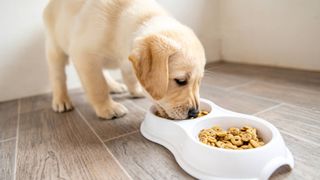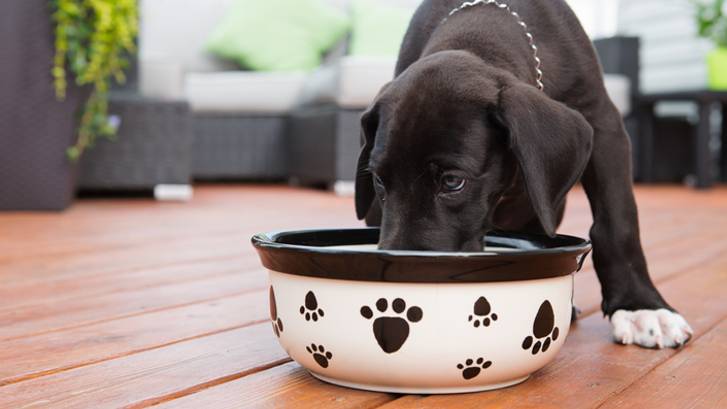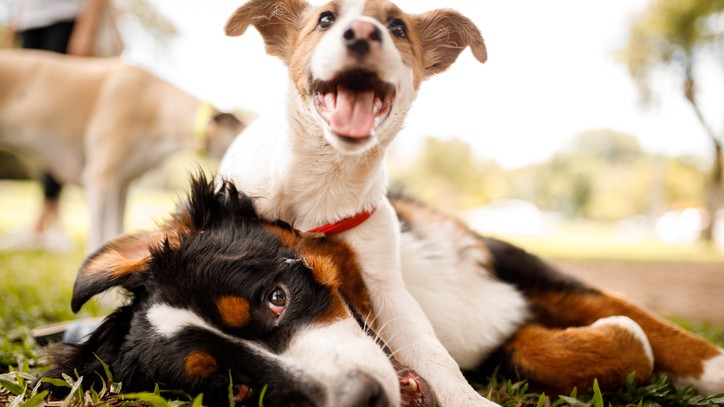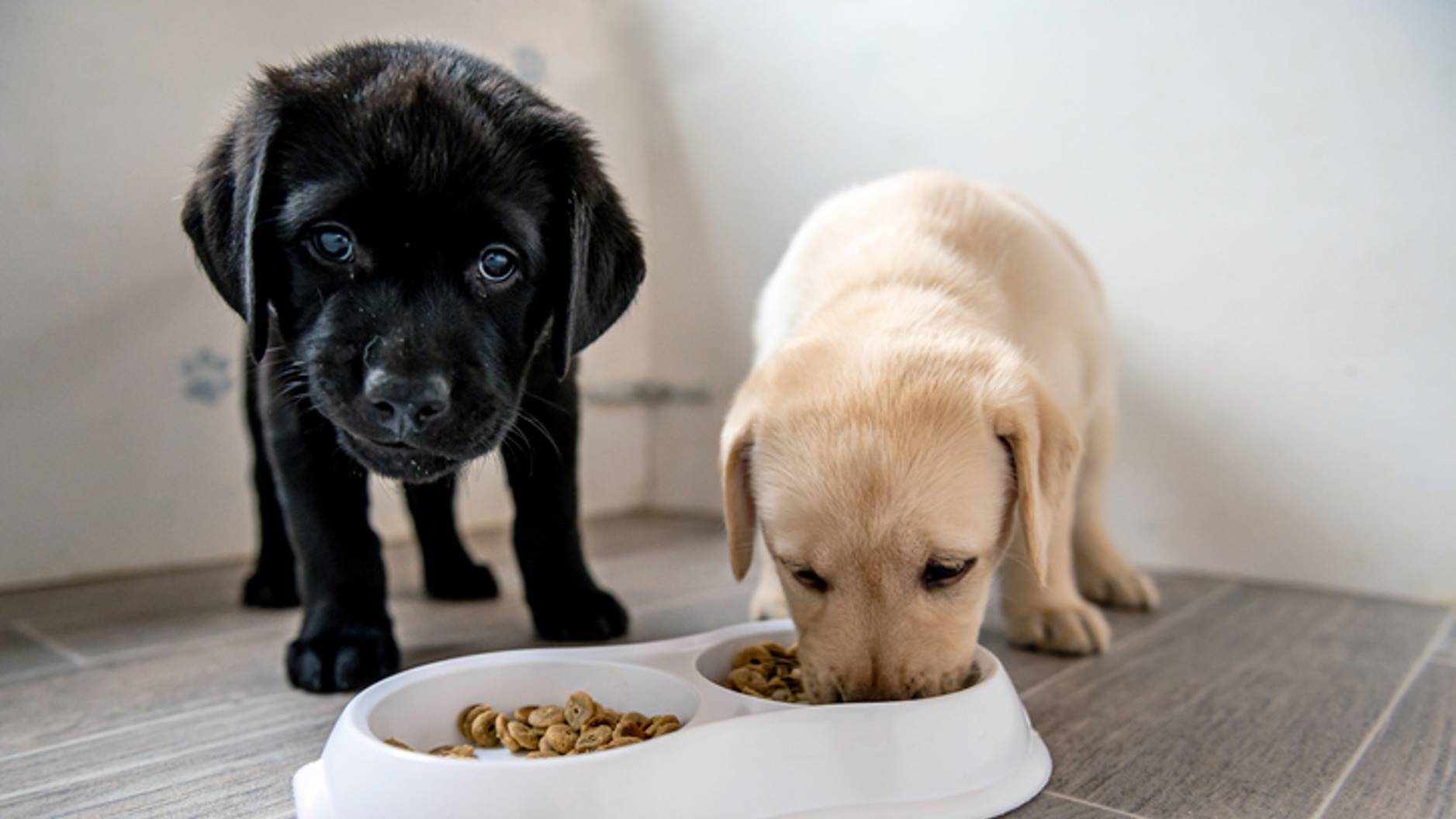When to Stop Feeding Puppy Food Walker Hound

When should I stop feeding my dog puppy food? It's a question you may well be asking as your puppy approaches adulthood, and changes in his behavior, appearance, appetite, and energy level begin to become apparent. You don't want to make this transition too late, but it's equally important not to switch to adult food too early. After all, the best puppy food provides nutrients that are essential for your puppy's growth and development.
In general, you should wait until your dog reaches musculoskeletal maturity before transitioning to an adult diet. This means waiting until your dog has finished growing and the growth plates in his bones have closed. Read on to learn more about the ins and outs of transitioning your dog to an adult diet.
- Best puppy toys: Perfect playthings for your pooch
- Best puppy sleep training products
Are there significant differences between puppy food and adult food?
Your puppy should eat a commercial diet that is specifically formulated for puppies. Growing puppies have different nutritional needs than adult dogs, and puppy food is formulated to meet these needs. Puppy diets tend to be higher in calories to support growth, and have a different balance of vitamins and minerals to provide optimal nutrition for growing bones and muscles. Most veterinary nutritionists do not recommend homemade, raw, or adult dog food diets for puppies because these diets do not provide the right balance of nutrients to support rapid growth and may lead to developmental abnormalities.
While feeding puppy food to an adult is less risky than feeding adult food to a puppy, there are still concerns with feeding an adult dog a diet that does not match his current life stage. Puppy diets are often higher in calories than adult food, in order to support rapid growth. This can lead to rapid weight gain in adults, especially in spayed or neutered dogs.
- Puppy not eating? Try this…
- How to stop a puppy chewing
- How much sleep does a puppy need?

When should I stop feeding my dog puppy food?
The exact timing of the transition from puppy food to adult food will depend on a few individual factors. Your puppy's age, breed, expected adult size, and current health status should all be taken into account. In most cases, you should wait until your dog is fully grown before transitioning to an adult diet. Small and medium breed dogs typically finish growing at around eight months to one year of age, while large and giant breeds may not reach their full adult size until 18 months of age.
If you're uncertain when your dog will be fully grown, a good rule of thumb is to wait until your dog is one year of age before transitioning to an adult diet. Some dogs may need to transition even earlier if they have medical problems that can be managed with diet, such as food allergies or digestive problems. Your veterinarian is a great resource to help you decide the best time to make the transition, and can also recommend adult dog foods to meet your dog's individual needs.
- Puppy food aggression: Six tips to stop it
- How much should I feed my puppy? A vet's guide
- How to train a puppy not to bite
At what age is a dog considered an adult?
A dog is considered to have reached adulthood once their musculoskeletal growth is complete and the skeletal growth plates have closed. This can occur between eight and 18 months of age, depending on your dog's breed and size. Small breed dogs tend to reach maturity sooner. Large and giant breed dogs take much longer to finish growing and may not reach adulthood until well over a year of age.
If you're still not sure, your veterinarian can help you determine whether your dog is likely to be fully grown or not. In some cases, he or she may even take x-rays to determine whether your dog's growth plates have fully closed, indicating musculoskeletal maturity.

How should I transition my dog to adult food?
Transitioning to a new diet should be done gradually, to prevent digestive upset. A diet transition should take at least seven days, but may need to be longer if your dog is prone to gastrointestinal issues, like diarrhea.
To help your dog get used to the new diet, start by mixing a very small amount of the new diet with their old puppy food. Every day, add a little bit more of the new food and a little bit less of your dog's old food. By mid-week, aim to be feeding a 50:50 mixture of the new and old food. Continue this gradual transition in the following days, with the goal of having your dog fully transitioned to the new adult diet by day seven.
If at any point your dog develops symptoms of an upset stomach such as diarrhea, loss of appetite, flatulence, or bloating, this is a sign that the diet transition may be happening too quickly.
Slowing down your transition can usually resolve midl gastrointestinal issues associated with a diet change. If gastrointestinal symptoms are severe, or if they persist for more than 24-48 hours, contact your veterinarian for further guidance.
How much should I feed my dog?
How much you feed your dog at each meal depends on many different factors, such as your dog's current weight and body condition score, activity level, the calorie content of the diet, and any other food or treats your dog receives during a typical day. Every brand and variety of dog food has a different nutritional content, so it's impossible to make a blanket recommendation without knowing the caloric content of a diet.
Most dog food bags have a feeding guide on the back of the bag. This can be a helpful starting point, but isn't always very detailed. For a more accurate assessment, ask your veterinarian to calculate your dog's daily calorie requirements. You can then use this number to determine how much to feed, based on the calorie content of your dog's food.
Don't forget to include any treats, supplements, or table scraps in your dog's daily allotment as well – these can be a significant source of extra calories! Remember that your adult dog is no longer growing and may have a slower metabolism after being spayed or neutered, so he may need fewer calories per day than he did previously.

How do I know if I'm feeding my puppy enough?
Your puppy should be eating enough to grow and gain weight at a steady, healthy rate. Puppies that grow too quickly or become overweight are more prone to develop orthopedic problems, so you do not want to overfeed your puppy. Ideally, your puppy should maintain a healthy lean body weight.
To determine whether you are feeding your puppy enough, ask your veterinarian to evaluate your puppy's Body Condition Score, or l earn how to evaluate the Body Condition Score at home (opens in new tab). If your puppy's Body Condition Score is too low, you may need to increase the amount of food you are feeding your puppy. If the Body Condition Score is too high, your puppy is overweight and you will need to decrease the amount of food you are feeding to reach an ideal score.
Welcome to adulthood!
When should I stop feeding my dog puppy food? When he reaches adulthood. You might miss those adorable puppy antics, but there are tons of new adventures to discover in this phase of your dog's life. With the right nutrition and a gradual transition to his new diet, your dog will be ready to take on any challenge his new adult life may bring!
Dr. Elizabeth Racine is a small animal general practice veterinarian covering all things pet health and wellness. Her special interests include veterinary behavior, nutrition, and internal medicine. As a freelance writer, Dr. Racine has written content for major companies in the industry such as the American Kennel Club, Merck Animal Health, Bayer PetBasics, Elanco, and CareCredit. In her free time, Dr. Racine enjoys playing trampoline dodgeball, hiking with her beagle Dasher, and spending time with her three mischievous cats. Dr. Racine can be found at www.theveterinarywriter.com (opens in new tab) and at https://www.linkedin.com/in/eracinedvm/ (opens in new tab)
Source: https://www.petsradar.com/advice/a-vets-view-on-when-to-stop-feeding-puppy-food-to-your-dog#:~:text=In%20most%20cases%2C%20you%20should,until%2018%20months%20of%20age.
0 Response to "When to Stop Feeding Puppy Food Walker Hound"
Postar um comentário